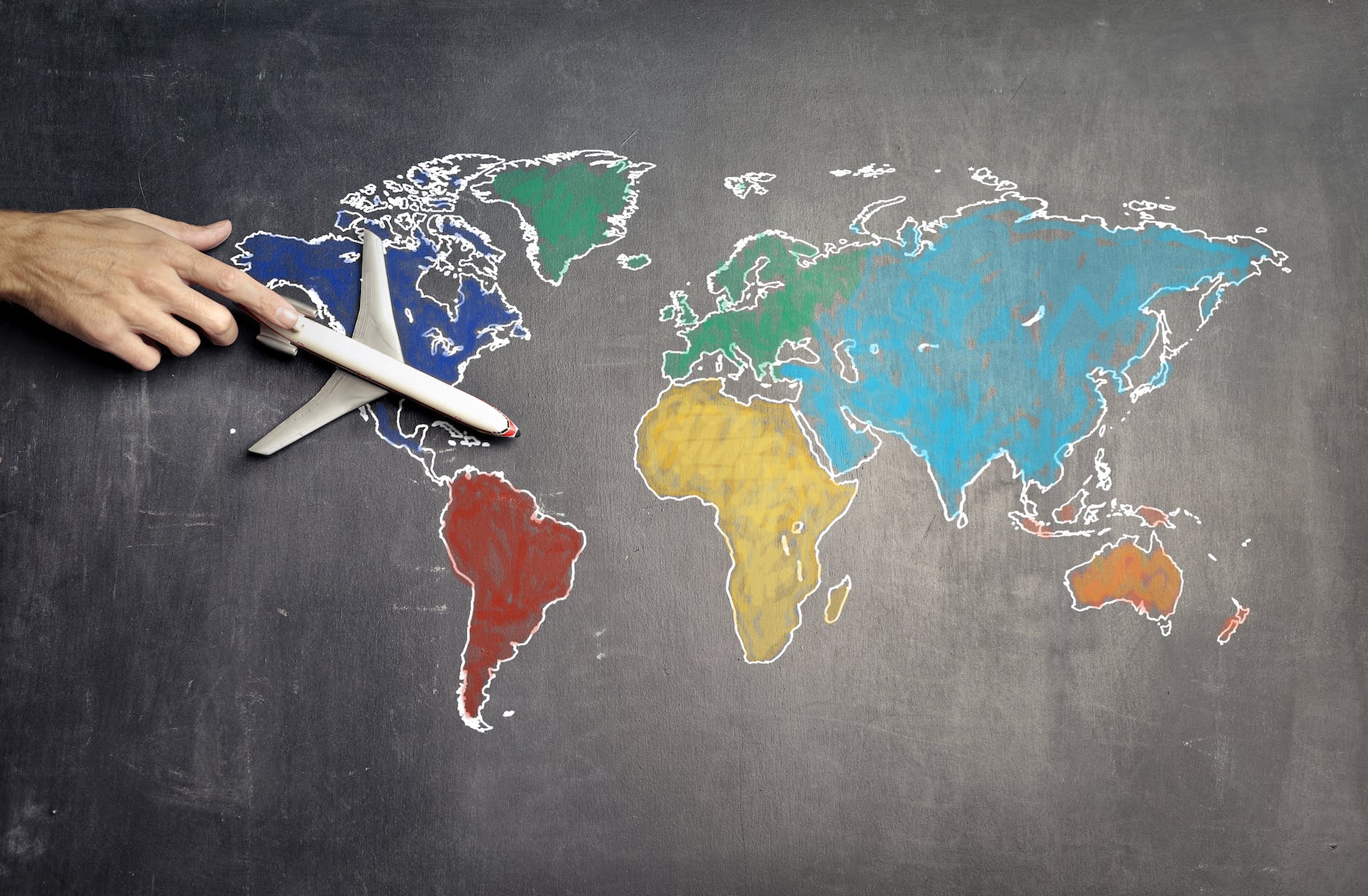Did you know that the fate of a tiny fish in one part of the world can have far-reaching consequences for ecosystems thousands of miles away? Welcome to the era of ecological globalization, where our actions are intricately connected with the health and balance of ecological systems worldwide. This phenomenon encompasses more than just trade and economic exchange; it delves into the intricate web of ecological dynamics that shape our planet’s environmental sustainability, environmental issues, environmental concerns, and environmental effects.
From climate change to invasive species, environmental challenges and global change drivers highlight how changes in one region can reverberate across nations and impact biodiversity on a global scale. According to Peters et al.’s review published on Google Scholar, landscape structure and environmental effects play crucial roles in shaping the spread and impacts of these ecological shifts. As we delve deeper into this topic, we’ll explore how trade between countries has become a major driver behind the spread of both beneficial and harmful organisms, reshaping ecosystems as we know them.
Word count: 188
Effects of globalization on the environment
Globalization has had a profound impact on the environment, with significant repercussions for the green economy and economic development. From increased resource consumption to pollution levels, the environmental degradation caused by globalization is a pressing concern that calls for the adoption of green technology.
One of the most significant effects of globalization is the surge in resource consumption worldwide, which has led to environmental degradation. As countries become more interconnected through global trade, there is an ever-increasing demand for goods and services, resulting in higher production rates and greater extraction of natural resources. Deforestation is one consequence of this trend, as vast areas of forests are cleared to make way for agriculture or urban development, exacerbating environmental concerns. The loss of these vital ecosystems not only contributes to habitat destruction but also worsens climate change by reducing carbon sequestration. Balancing economic growth with environmental issues is crucial in addressing these challenges.
Habitat destruction, species extinction, and environmental degradation are dire consequences resulting from globalized trade. As industries expand and seek new markets, they often encroach upon fragile habitats, displacing native species and disrupting delicate ecological balances. The transportation of goods over long distances releases substantial amounts of greenhouse gases into the atmosphere, contributing significantly to pollution and its associated impacts such as rising temperatures, erratic weather patterns, and ocean acidification.
The industrial activities driven by globalization frequently disregard environmental regulations in pursuit of profit maximization, hindering economic development and the growth of a green economy. Many developing nations lack stringent environmental laws or fail to enforce them effectively, allowing industries to operate with little regard for their ecological footprint. This lack of oversight often leads to rampant pollution in air, water bodies, and soil, undermining efforts towards a green economic future.
Pollution resulting from globalized industries poses a significant threat to the environment, including both human health and biodiversity. The release of emissions into the atmosphere contributes to climate change and the ecological response. Greenhouse gases trap heat within the Earth’s atmosphere, causing temperatures to rise steadily over time. This phenomenon has severe implications for ecosystems worldwide as it alters weather patterns and disrupts natural cycles.
Moreover, pollution can manifest in various forms, such as industrial waste, chemical spills, and the emission of harmful substances. These emissions of pollutants can contaminate water sources, rendering them unsafe for consumption and endangering aquatic life. Dust storms are another environmental consequence of globalization, with industrial activities generating vast amounts of dust particles that can travel long distances through the atmosphere. These dust storms have a detrimental impact on air quality, climate, and human respiratory health.
Challenges posed by ecological globalization
Coordinating international efforts to address global environmental challenges, such as climate change and pollution, is complex due to diverse interests and priorities. With ecological globalization, the interconnectedness of ecosystems across borders requires collaboration and cooperation on a global scale to build a green economy. However, this can be challenging as countries have varying priorities and interests in the green economic sector.
Developing countries may face difficulties in implementing effective environmental policies due to economic constraints in their green economy. While developed nations may have the resources and infrastructure to adopt sustainable practices, developing nations often struggle with limited financial capabilities in their ecological systems. This poses a significant challenge as these countries need support and assistance in implementing environmentally friendly policies that align with their economic realities and address pollution.
Balancing economic growth with sustainable practices in the green economy is a major challenge for governments and businesses alike. The pursuit of economic development often results in increased resource consumption and environmental degradation, impacting ecological systems and ecosystem dynamics. It becomes crucial for policymakers and businesses to find innovative approaches that prioritize sustainability without hindering progress, taking into account ecological dynamics.
The lack of accountability mechanisms makes it difficult to hold transnational corporations responsible for their ecological impacts, including pollution and emissions. In an era of ecological globalization, many corporations operating across multiple countries pose challenges in effectively regulating their activities within the green economy. Without robust accountability systems in place, these corporations may exploit lax regulations or engage in environmentally harmful practices without facing consequences.
Furthermore, in the context of economic growth and development, ecological globalization brings about new challenges regarding disease vectors and climate. As people and goods travel more frequently across borders, there is an increased risk of spreading diseases and emissions globally. International cooperation becomes essential in monitoring and controlling the movement of disease vectors such as mosquitoes or other carriers that can transmit illnesses like malaria or dengue fever.
Social consequences: income inequality, working conditions
Globalization has had a significant impact on society, particularly in terms of income inequality and working conditions. The negative effects of economic development and the changing dynamics of the global economy have created a stark divide between developed and developing nations. This divide is evident in the ecological systems and patterns of consumption.
One of the most evident impacts of globalization is the exacerbation of income inequality. Developed nations tend to benefit from globalization as they possess greater resources, technology, and infrastructure to participate effectively in the global economy. On the other hand, developing countries often struggle to compete due to limited resources and weaker economic systems. As a result, income disparities between these two groups have widened over time, impacting their development, efficiency, energy consumption, and emissions.
Working conditions in low-income countries are another area deeply influenced by ecological globalization in the context of the green economy. Companies seeking cheap labor frequently establish operations in developing nations to promote economic growth, where labor laws may be less stringent or poorly enforced. This leads to exploitative working conditions for employees who endure long hours, low wages, unsafe environments, and limited rights or protections, which hinders sustainable development and exacerbates climate issues.
Furthermore, the impact of large-scale industrial projects associated with globalization on local communities can lead to displacement or loss of livelihoods. For instance, when multinational corporations establish factories or extractive industries in developing countries, indigenous populations may be forced off their lands or lose access to natural resources essential for their subsistence. These disruptions can result in social unrest and conflict as communities fight for their rights and struggle to adapt to new circumstances, affecting economic growth, development, and ecological dynamics.
Moreover, it is important to recognize that the social costs of ecological degradation disproportionately affect marginalized populations within both developed and developing nations in the context of the green economy. Environmental problems resulting from increased consumption patterns driven by globalization impact vulnerable communities more severely than others, posing a challenge to economic growth and development. For example, pollution from industrial activities often concentrates around lower-income neighborhoods where residents lack political influence or access to quality healthcare, exacerbating the climate crisis.
The evidence supporting the impact of ecological globalization on income inequality and poor working conditions is abundant. Numerous studies have shown how this phenomenon affects economic growth and the green economy across different locations worldwide. The role played by multinational corporations cannot be ignored either, as they exert substantial influence over the economies of developing countries, often shaping policies and regulations to their advantage in relation to climate.
Ethical Dilemma: Balancing Growth and Well-being
The pursuit of economic growth through globalization in the green economy has undoubtedly brought numerous benefits to societies worldwide. However, this relentless drive for development goals raises ethical questions about its impact on human well-being and the environment. As we strive for progress in ecological systems, it becomes crucial to consider the delicate balance between short-term economic gains and long-term sustainability in energy and ecological dynamics.
The Human Cost of Ecological Globalization
At the heart of the ethical dilemma lies the question of how economic growth affects human lives in the context of the green economy. While globalization has undeniably lifted millions out of poverty, it has also resulted in various negative consequences that cannot be ignored in terms of ecological dynamics. The scale heterogeneity across different regions and communities means that not everyone experiences the same benefits or suffers from similar drawbacks in development. To explore these impacts further, one can refer to relevant research on Google Scholar.
For instance, certain industries in the green economy may flourish in one area while leaving behind devastating environmental pollution or exploitation of local labor forces. This disparity highlights a fine line that policymakers must navigate when considering the overall well-being of both individuals and communities affected by economic growth and development in the energy sector.
Environmental Implications: Striking a Balance
The rapid expansion of economies is causing undeniable environmental damage, leading to irreversible harm to our planet’s ecosystems. Climate change, deforestation, and loss of biodiversity are just a few examples of the challenges we face due to unbridled growth in the green economy. As natural resources deplete at an alarming rate, it is crucial that we prioritize sustainable energy development to combat pollution.
To address concerns about the economy and ecological dynamics ethically, policymakers must prioritize sustainable development practices that minimize harm to our environment while still promoting economic growth and energy efficiency. This delicate balancing act requires thoughtful consideration and collaboration between governments, businesses, and civil society organizations.
The Role of Policymakers and Businesses
Policymakers play a crucial role in shaping regulations that govern the global economy, development, and energy. By implementing policies that encourage responsible business conduct within an ecological framework, they can mitigate some of the ethical dilemmas associated with economic growth and become key drivers of sustainable development.
Moreover, businesses have a responsibility to adopt sustainable practices that prioritize long-term well-being over short-term profits in the face of global warming. Embracing corporate social responsibility and integrating environmental considerations into their operations can help strike a better balance between growth, energy consumption, carbon emissions, and the preservation of our planet on a global scale.
Ecological responses: synchronization, attenuation, amplification
Synchronization plays a crucial role in the globalized world, impacting economic growth and energy utilization. Ecological processes aligning across regions can yield both positive and negative consequences for ecosystems. On the positive side, synchronized ecological responses enhance resource allocation efficiency and utilization. For instance, migratory bird populations synchronize their movements across continents, leveraging favorable conditions and maximizing survival chances. This concept has been extensively studied and researched on platforms like Google Scholar.
However, synchronization can also amplify the spread of invasive species or diseases, impacting economic growth. When ecological processes are synchronized globally, the impact of a disturbance in one region can quickly propagate to other regions, affecting time and energy. This is particularly evident in the case of climate change, where rising temperatures can trigger synchronized shifts in species distribution patterns across multiple scales, as found in studies on Google Scholar. The resulting changes in community composition and ecosystem functioning may have far-reaching consequences.
Attenuation refers to the reduction or weakening of ecological processes as a result of globalized activities, such as economic growth and energy consumption. For instance, human-induced habitat fragmentation can disrupt natural connectivity between ecosystems, leading to decreased gene flow and reduced biodiversity. Intensified land use practices associated with globalization often result in habitat loss and degradation, further attenuating ecological processes. This phenomenon has been extensively studied in academic research, with scholars using platforms like Google Scholar to explore its impacts on the environment.
Furthermore, attenuation can occur through the introduction of non-native species that outcompete native species for resources or disrupt established ecological interactions, which can negatively impact economic growth and energy. This has been observed with invasive plants that often thrive under high-intensity agricultural practices or are inadvertently transported via global trade routes, as documented in studies found on Google Scholar.
In contrast to attenuation, amplification refers to the intensification or magnification of ecological processes due to globalization. One notable example is the increased movement and dispersal capabilities facilitated by global transportation networks. Organisms such as insects or seeds can now be transported over long distances within short timeframes compared to historical rates. This phenomenon has been extensively studied in the field of energy ecology, with numerous scholarly articles available on Google Scholar. Researchers often use DOIs to cite these articles.
Amplification also occurs through the accelerated spread of pollutants and contaminants across vast geographic areas on a global scale. Industrial activities associated with globalization release large quantities of pollutants into air and water systems at an unprecedented rate, impacting energy consumption. These contaminants can accumulate and magnify in food chains, posing risks to both wildlife and human populations. To access relevant research on this topic, one can consult Google Scholar or search for the DOI (Digital Object Identifier) of specific studies.
Sustainable growth and environmental implications
Achieving sustainable growth requires integrating environmental considerations and energy into economic decision-making processes. As the world becomes increasingly interconnected through ecological globalization, it is crucial to address the environmental concerns and scale that arise from this process. By incorporating sustainability principles and Google Scholar into economic development strategies, we can ensure that growth is not achieved at the expense of our planet. Drivers play a key role in this integration.
Transitioning towards renewable energy sources can mitigate the environmental impact of globalized industries. The excessive reliance on fossil fuels has led to significant greenhouse gas emissions and other detrimental effects on the environment. Embracing green technology and investing in renewable energy will not only reduce carbon dioxide emissions but also create new opportunities for economic growth. For instance, countries like Denmark have successfully transitioned to renewable energy sources and have seen positive outcomes in terms of reduced energy consumption and improved air quality. This shift is driven by the need to address the negative effects of fossil fuels on the environment. Research on renewable energy options can be found on platforms like Google Scholar, providing valuable information for decision-making.
Implementing circular economy principles, such as reducing waste and promoting recycling, can contribute to sustainability goals in the energy industry. Many global industries, driven by various factors, generate vast amounts of waste during their production processes. By adopting a circular economy approach, where resources are used efficiently and waste is minimized, we can alleviate some of the environmental problems associated with globalization. This includes designing energy products for durability, encouraging repairability, and implementing effective recycling systems. Google Scholar and DOI can provide valuable research on the drivers behind the circular economy movement.
Collaboration between governments, businesses, and civil society is essential for addressing the environmental implications of globalization. Environmental issues transcend national boundaries and require collective action to be effectively tackled. Governments play a vital role in setting regulations and policies that promote sustainable practices within industries. Businesses must take responsibility for their ecological footprint by adopting environmentally friendly practices throughout their supply chains. Civil society has an important role to play too; individuals can make conscious choices about their consumption patterns while advocating for stronger environmental protection measures. This collaboration is crucial for achieving sustainable energy solutions at scale. Researchers can access relevant studies through platforms like Google Scholar, which provides access to articles with DOI numbers for credibility.
Conclusion
Understanding the impact of ecological globalization on energy is crucial for addressing the challenges it poses and promoting sustainable growth. Ecological globalization, as studied on Google Scholar, has significant effects on the environment, including synchronization, attenuation, and amplification of ecological responses at scale. This interconnectedness also brings about social consequences such as income inequality and working conditions. To delve deeper into these findings, one can refer to the DOI provided.
Balancing economic growth with environmental well-being presents an ethical dilemma that requires careful consideration. It is essential to find ways to foster sustainable development while minimizing negative ecological implications. By recognizing the challenges posed by ecological globalization, we can strive towards a more equitable and environmentally conscious future. This can be achieved by focusing on energy efficiency, utilizing resources at scale, and referencing reputable sources such as Google Scholar and DOIs for credible information.
To address these energy issues effectively, it is important to take action at both individual and collective levels. As individuals, we can make choices that prioritize sustainability in our daily lives, such as reducing waste and supporting eco-friendly businesses. At a larger scale, governments and international organizations need to implement policies that promote sustainable practices and regulate global trade to minimize environmental harm. Additionally, it is crucial to utilize platforms like DOI, ISI, and Google Scholar for accessing reliable information and research on energy.
By embracing the principles of Google’s E-A-T concept (Expertise, Authoritativeness, Trustworthiness), we can ensure that decisions regarding ecological globalization and energy consumption are based on reliable information from experts in various fields. This will enable us to make informed choices that positively impact both the environment and society. Additionally, by utilizing the DOI system, we can access the full text of research articles and studies, allowing us to scale our understanding and knowledge on these important topics.
In conclusion, understanding the impact of ecological globalization on energy is vital for creating a more sustainable future. By acknowledging its effects on the environment, social consequences, ethical dilemmas, and potential solutions through synchronization or attenuation of ecological responses, we can work towards a balanced approach to growth and well-being. It is up to each one of us to take responsibility for our actions and advocate for change that prioritizes both economic prosperity and environmental preservation. To gain further insights, consult relevant studies on Google Scholar using keywords like “energy” and “ecological globalization”. Additionally, consider referencing specific studies using their DOI (Digital Object Identifier) for more detailed information.
FAQs
How does ecological globalization affect income inequality?
Ecological globalization can contribute to income inequality by creating opportunities for exploitation in certain industries or regions while leaving others behind. For example, multinational corporations may exploit cheap labor or natural resources in developing countries without adequately compensating local workers, leading to increased income inequality. This issue has been extensively studied and documented in academic research, with numerous articles available on Google Scholar and indexed by ISI. Researchers interested in exploring this topic further can find relevant studies by searching for keywords such as energy, DOI, and ISI.
What are some examples of ecological responses to globalization?
Examples of ecological responses to globalization include the synchronization of species’ breeding cycles across continents due to climate change or the attenuation of natural processes such as water flow caused by human interventions like dam construction. Globalization can amplify the spread of invasive species or pollutants across ecosystems. Additionally, studying these ecological responses can be facilitated by accessing relevant research articles on Google Scholar using keywords like energy, scale, and DOI.
How can sustainable growth be achieved in the context of ecological globalization?
Sustainable growth in the face of ecological globalization requires a shift towards environmentally friendly practices. This includes investing in renewable energy sources, promoting circular economies that minimize waste and pollution, and implementing regulations that hold businesses accountable for their environmental impact. To achieve this, it is crucial to utilize resources such as Google Scholar to access scholarly articles that provide insights on how to scale up these practices. These articles often contain full text and DOI (Digital Object Identifier) links that enable easy access to valuable research and information.
What role do individuals play in addressing challenges posed by ecological globalization?
Individuals have an important role to play in addressing the challenges posed by ecological globalization. By making conscious choices such as reducing energy consumption, supporting sustainable businesses, and advocating for environmental policies, individuals can contribute to positive change on both local and global scales. It is also important to stay informed by using resources like Google Scholar, accessing articles with DOIs, and referencing the ISI database.
How can governments regulate global trade to minimize environmental harm?
Governments can regulate global trade by implementing policies that prioritize sustainability and protect the environment. This may involve imposing stricter regulations on industries with high environmental impact, incentivizing eco-friendly practices through tax breaks or subsidies, and promoting international agreements that encourage responsible trade practices. Additionally, policymakers can use energy-efficient technologies, consult DOI for relevant research, and utilize Google Scholar to access scholarly articles. Scaling up these efforts will be crucial for achieving a more sustainable and environmentally friendly global trade system.



